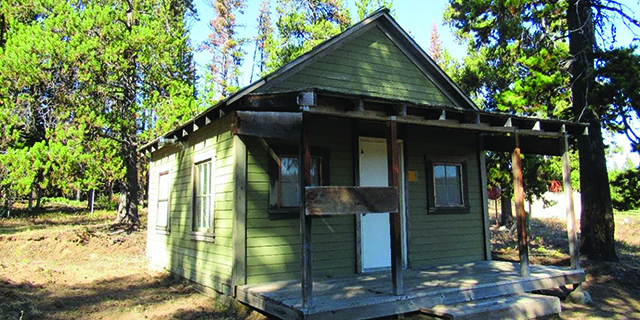Mountain Medicine: Is an aspirin a day worth the risk?
Published 2:26 pm Tuesday, December 4, 2018
Medicine is a science of uncertainty and an art of probability.
–– William Osler
Trending
After years of taking daily low-dose aspirin, I have gone cold turkey (with my physician’s endorsement). Today’s Mountain Medicine reviews the rationale for low-dose aspirin, its history and recent updates for prevention of cardiovascular diseases.
Aspirin has three main effects: analgesia, fever reduction and reduction of inflammation. In the ‘60s, aspirin was also found to impair the ability of specific blood cells, called platelets, to “clump” together and form a clot.
Clumping of platelets is an important factor in cardiovascular diseases that can lead to heart attacks and some forms of stroke. In the ‘70s, clinical trials found that patients with a history of heart attack and stroke who were taking aspirin had fewer subsequent attacks.
Aspirin in these high-risk patients is called “secondary prevention.” Studies were also started to see if aspirin would prevent cardiovascular disease in otherwise healthy persons. This is called “primary prevention.”
Based on these early studies, in 2016 the United States Preventive Services Task Force published recommendations for primary prevention. Low-dose aspirin was recommended for individuals between 50-59 years with greater than a 10 percent risk of cardiovascular disease over 10 years (www.cvriskcalculator.com).
Trending
Recommendations for other age groups were less definitive. Aspirin use increased dramatically, but it remained uncertain who would benefit most.
Much of this uncertainty has just been answered. Three well-designed large multicenter clinical trials were published in October in the New England Journal of Medicine and The Lancet. These studies and expert commentary can be found on-line.
All three trials studied primary prevention in large samples of patients with different cardiovascular disease risks. Subjects were randomized to placebo or daily aspirin (100 mg) for approximately 5-7 years. The main outcomes measured included cardiovascular disease and bleeding. A synopsis of each study follows.
Patients with increased cardiovascular disease risk: The ARRIVE trial enrolled 2,546 patients over 55 years with moderate risk. There was no significant difference in rate of cardiovascular disease between aspirin (4.3 percent) and placebo (4.5 percent). Gastrointestinal bleeding was infrequent and mild, but double in the aspirin group.
Elderly patients: The ASPREE trial studied 9,114 community dwelling persons older than 70. Results: They also found no significant difference in cardiovascular disease rate between aspirin (4.7 percent) and placebo (4.9 percent). Major hemorrhage was 38% higher in the aspirin group (3.8 percent vs. 2.8 percent).
Serious bleeding from aspirin is most common in older subjects, so this was not a surprising result. Diabetic patients: The ASCEND trial studied 15,480 diabetic adults. Results: Cardiovascular disease events were significantly lower in the aspirin group (8.5 percent) compared with placebo (9.6 percent). However, major bleeding was more common with aspirin (4.1 percent) versus placebo (3.2 percent).
Aspirin failed to have a clear benefit in these large well-designed trials just published in the best medical journals. Why did aspirin not work as hoped?
Medical advances over the past decade, including widespread statin use, improved control of blood pressure, better control of blood sugar in diabetic patients and lower rates of smoking has resulted in significant reductions in cardiovascular disease. Because risks and rates of the disease are declining, there is less benefit to taking aspirin. Since there is little benefit, the risk of bleeding becomes dominant.
The takeaway? Low dose aspirin is still appropriate as secondary prevention for many patients with a history of cardiovascular disease such as heart attack and stroke. But for those taking aspirin for primary prevention, discussing the benefits and risks for your specific condition with your healthcare provider should be on your agenda.
Ron Polk is Emeritus Professor, Virginia Commonwealth University and lives in Lostine. He and Dr. Kelsey Allen work with local medical practitioners to produce Mountain Medicine.









